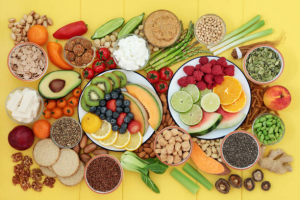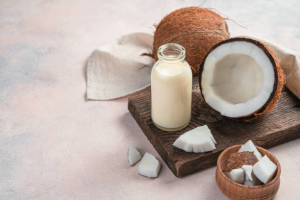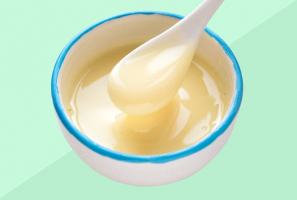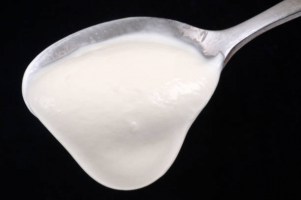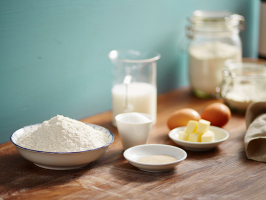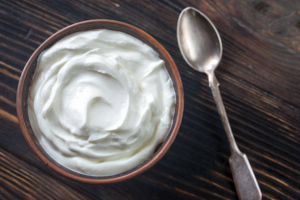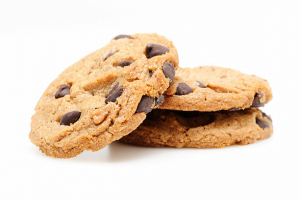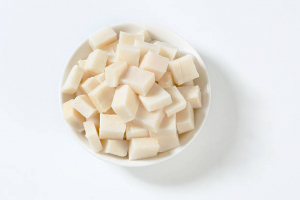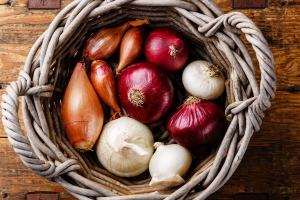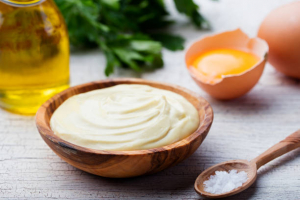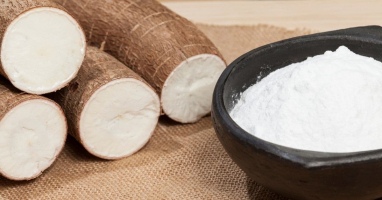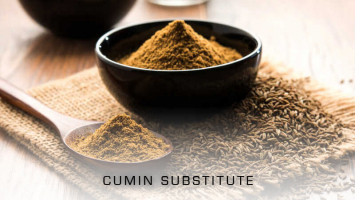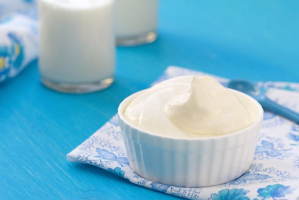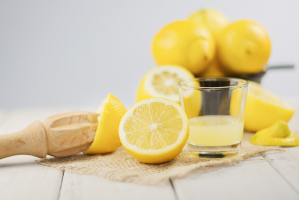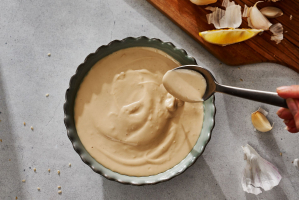Top 10 Best Nondairy Substitutes for Milk
Nondairy milk alternatives have risen in popularity in recent years, directly challenging cow milk for grocery aisle dominance. There are a variety of reasons ... read more...why these alternatives are becoming more popular among shoppers, from lactose intolerance issues to going vegan or dairy-free. Below are some of the Best Nondairy Substitutes for Milk you can refer to!
-
Soy milk is made from soybeans or soy protein isolate, and thickeners and vegetable oils are often added to improve taste and consistency. Its taste is normally mild and creamy. The taste, on the other hand, might differ between brands. It's best used in savory dishes, with coffee, or on top of cereal as a cow's milk substitute.
Unsweetened soy milk has 80–90 calories, 4–4.5 grams of fat, 7–9 grams of protein, and 4 grams of carbs per cup (240 ml). Soy milk is a close non-dairy substitute for cow's milk in terms of nutrients. It has around half the calories, fats, and carbs, but has a similar amount of protein. Soy milk protein is healthy, plant-based, and can help in the maintenance of healthy muscles and organs. Omega-3 fatty acids, found in soy milk, are "healthy" fats that your body cannot produce on its own. Omega-3 fatty acids have been linked to a lower risk of Alzheimer's disease and dementia.
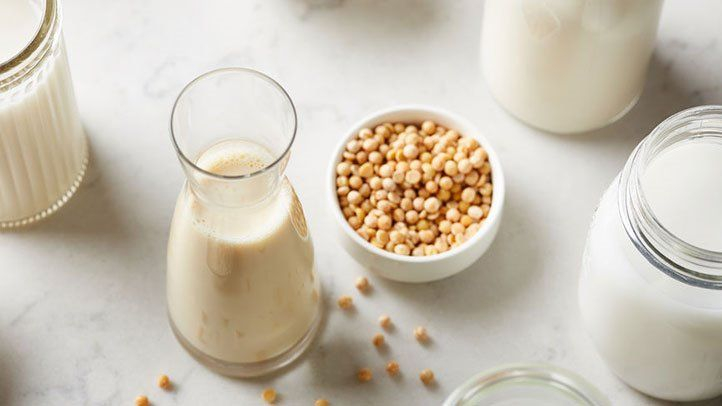
Soy Milk 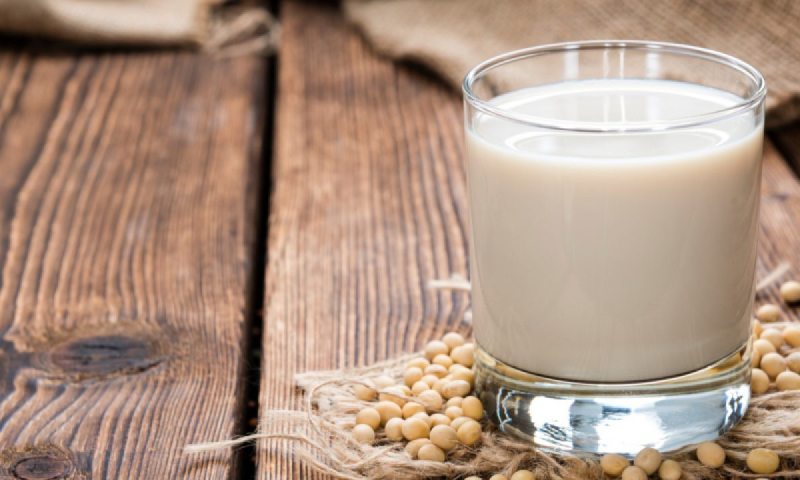
Soy Milk -
Almond milk is made with water and either whole almonds or almond butter. It has a light texture and sweet and nutty taste. It may be used as a substitute for cow's milk in desserts and baked goods, as well as in coffee and tea.
Unsweetened almond milk has 30–35 calories, 2.5 grams of fat, 1 gram of protein, and 1–2 grams of carbs per cup (240 ml). It has less than a quarter of the calories and less than half the fat of cow's milk. It also has a lower protein and total carbohydrates. It's one of the lowest-calorie non-dairy milk on the market, making it an excellent choice for anyone looking to reduce their calorie intake. Furthermore, almond milk is a natural source of vitamin E, an antioxidant that helps in the protection of the body against disease-causing substances known as free radicals. Choose almond milk products with a higher almond content, about 7–15%, to get the greatest nutrients and health benefits from almonds.
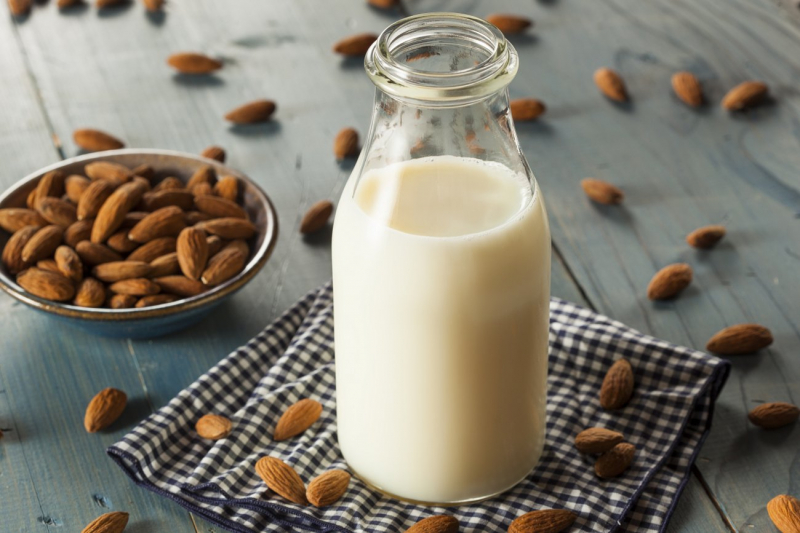
Almond Milk 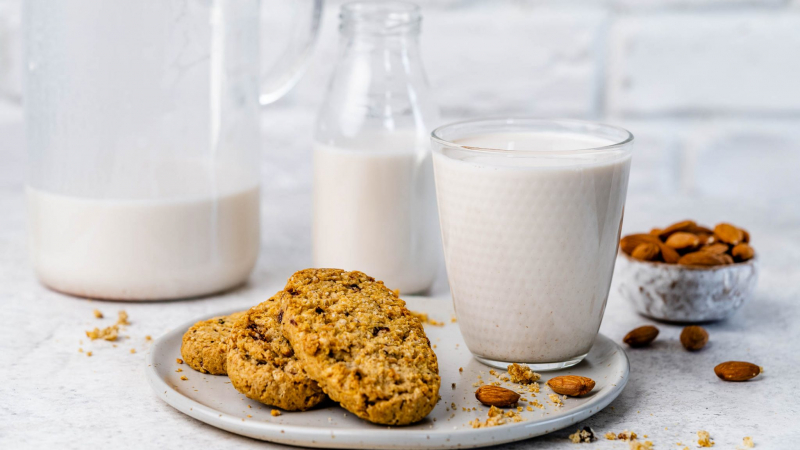
Almond Milk -
Water and the white flesh of brown coconuts are used to make coconut milk. It is sold in cartons with milk and is a more diluted version of the canned coconut milk used in Southeast Asian and Indian cuisines.
Coconut milk has a smooth texture and a mildly sweet coconut taste. 45 calories, 4 grams of fat, no protein, and nearly no carbs are included in one cup (240 ml). Coconut milk has one-third the calories, half the fat, and much less protein and carbs than cow's milk. Around 90% of the calories in coconut milk come from saturated fat, particularly medium-chain triglycerides, a type of saturated fat (MCTs). MCTs may help reduce appetite, help weight loss, and improve blood cholesterol levels more than other fats, according to some research.
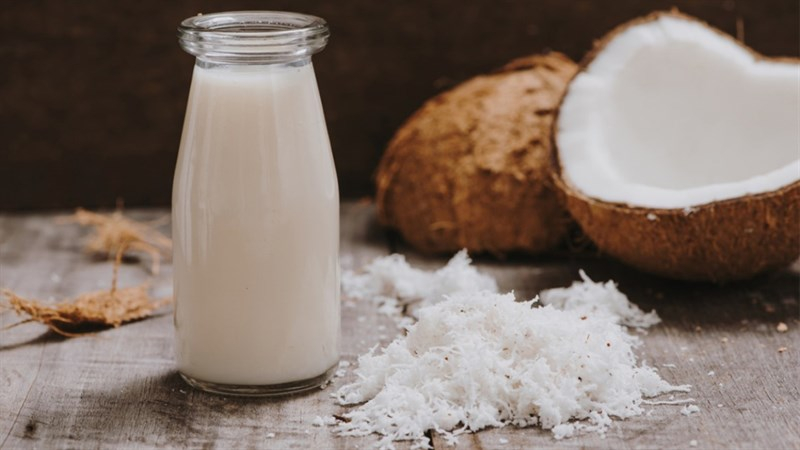
Coconut Milk 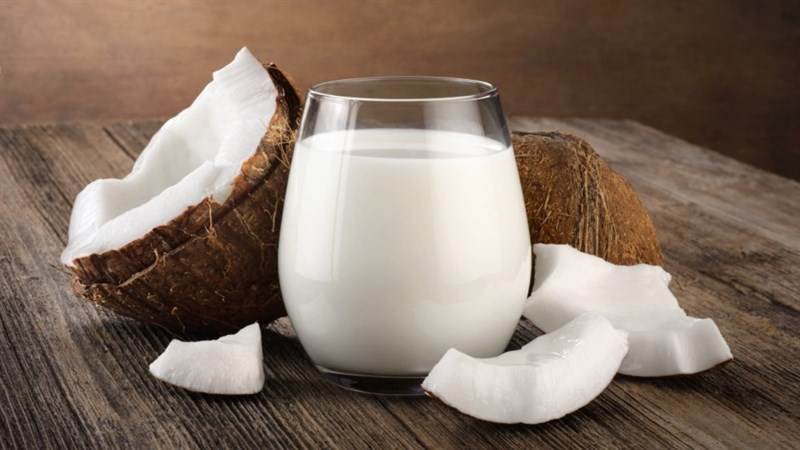
Coconut Milk -
Oat milk is made from a mixture of oats and water. To get a good flavor and texture, producers often add extra ingredients such as gums, oils, and salt. Oat milk has a mild taste and is naturally sweet. It may be used in the same way as cow's milk in cooking, and it goes well with cereal or smoothies.
140–170 calories, 4.5–5 grams of fat, 2.5–5 grams of protein, and 19–29 grams of carbs are included in one cup (240 ml). Oat milk has a similar number of calories as cow's milk but contains up to double as many carbs and half as much protein and fat. Oat milk is rich in total fiber and beta-glucan, a type of soluble fiber that forms a thick gel in the gut as it goes through. The beta-glucan gel binds to cholesterol and prevents it from being absorbed by the body. This reduces cholesterol levels, especially LDL cholesterol, which is linked to a higher risk of heart disease. One study found that drinking 25 ounces (750 ml) of oat milk daily for five weeks reduced total cholesterol by 3% and LDL cholesterol by 5% in men with high cholesterol.
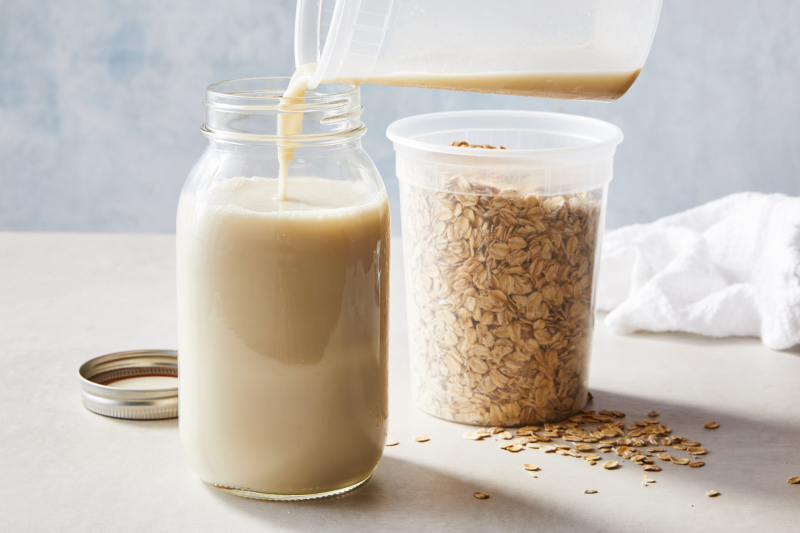
Oat Milk 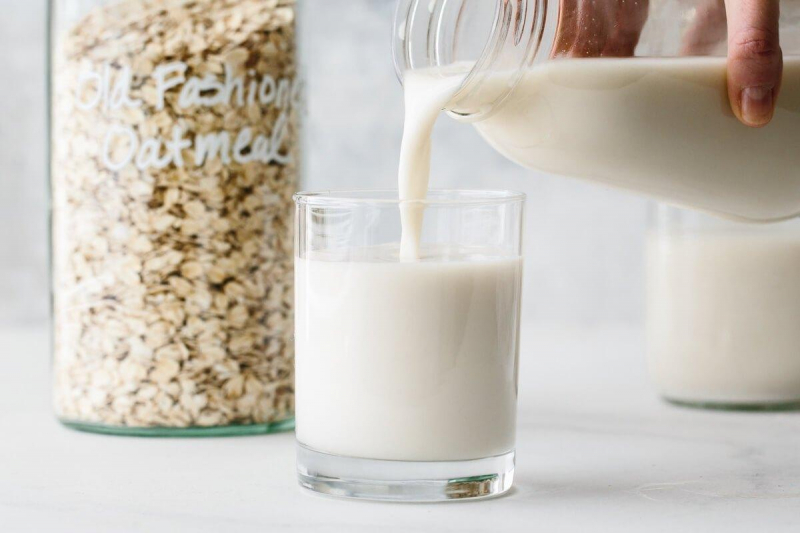
Oat Milk -
Rice milk is made from water and milled white or brown rice. Among the nondairy milk, rice milk is the least allergenic. This makes it a safe option for those who have dairy, gluten, soy, or nut allergies or intolerances.
Rice milk has a mild flavor and is naturally sweet. It has a slightly watery consistency and is delicious on its own, in smoothies, as well as in desserts and with oatmeal. Rice milk has 130–140 calories, 2–3 grams of fat, 1 gram of protein, and 27–38 grams of carbs per cup (240 ml). Rice milk has a similar calorie count as cow's milk, but nearly double the number of carbs. It also has a lower protein and fat content. Rice milk has the highest carbs of all the non-dairy milk options on this list, around three times as many as the others. Rice milk has a high glycemic index (GI) of 79–92, meaning that it is quickly absorbed in the gut and raises blood sugar levels. As a result, it's likely that it's not the best option for diabetics.
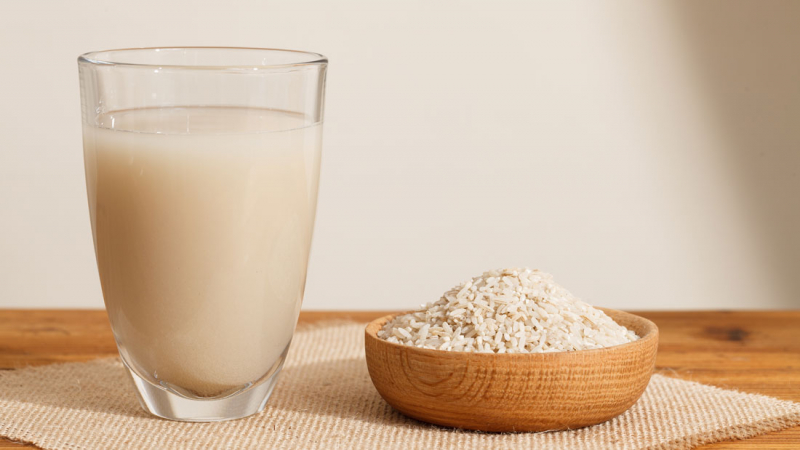
Rice Milk 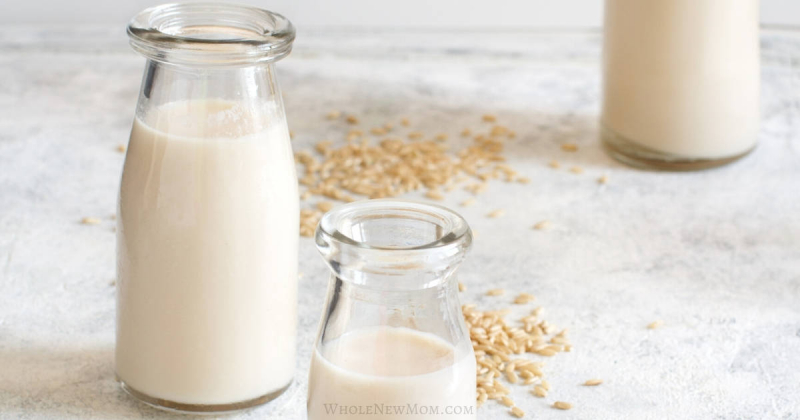
Rice Milk -
Cashew milk is made by mixing cashew nuts or cashew butter with water. It has a sweet and nutty flavor and is rich and creamy. It's excellent for thickening smoothies, adding cream to coffee, and substituting cow's milk in desserts.
Unsweetened cashew milk has just 25–50 calories, 2–4 grams of fat, 0–1 gram of protein, and 1–2 grams of carbs per cup (240 ml). Cashew milk has a third of the calories, half the fat, and much less protein and carbs than cow's milk. Cashew milk may not be the ideal choice for people who need a lot of protein because of its low protein level. If you have greater protein needs or are having trouble meeting your daily protein requirements, it can be worth switching to higher-protein milk like soy or oat. Unsweetened cashew milk, on the other hand, is an excellent low-calorie option for those trying to lower their overall daily calorie consumption, with only 25–50 calories per cup (240 ml). Its low carbohydrate and sugar content makes it a good choice for people who need to keep track of their carb intake, such as diabetics.
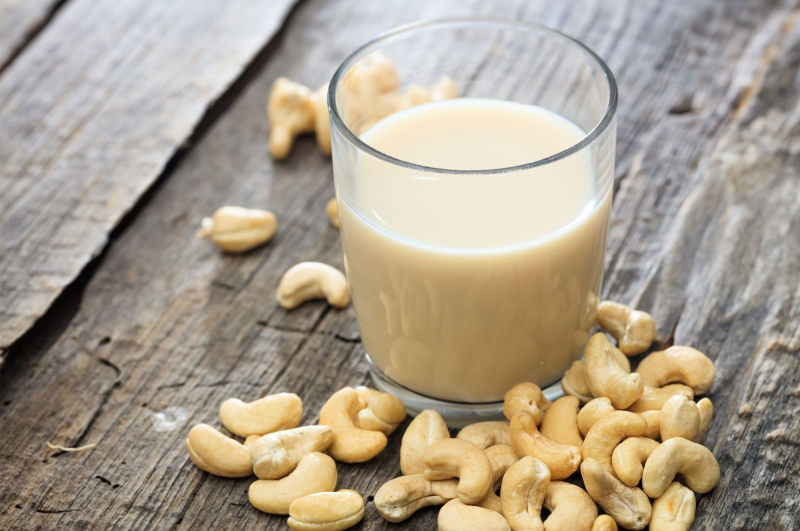
Cashew Milk 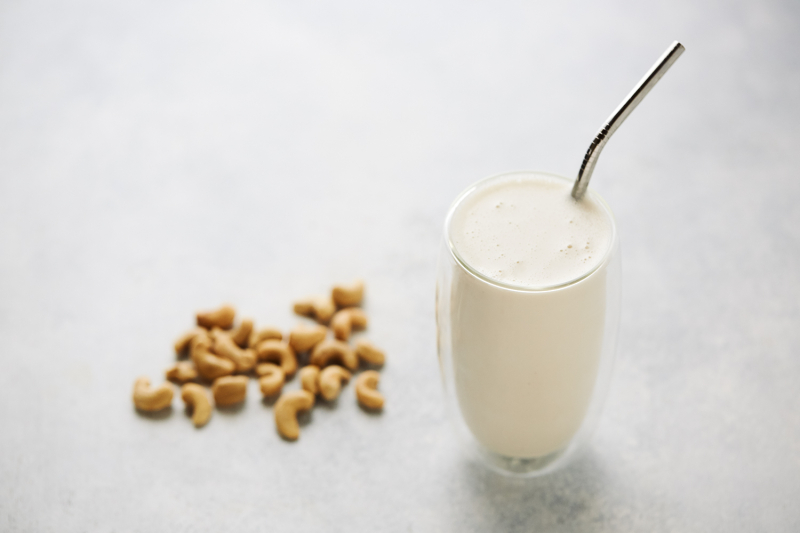
Cashew Milk -
Water and roughly 3% macadamia nuts make up of macadamia milk. It's a relatively new product on the market, with the majority of brands being made in Australia from Australian macadamias. It tastes better in coffee and smoothies because it has a richer, smoother, and creamier flavor than other non-dairy milk.
50–55 calories, 4.5–5 grams of fat, 1–5 grams of protein, and 1 gram of carbs are included in one cup (240 ml). Macadamia milk has roughly half the fat and one-third the calories of cow's milk. It also has a lower protein and carbohydrate content. It has low-calorie content, which makes it an excellent choice for those trying to cut calories. It's also a good choice for people with diabetes or who want to cut down on their carb consumption because of the low carbohydrate content. Furthermore, macadamia milk contains 3.8 grams of healthy monounsaturated fats per cup (240 ml). Monounsaturated fats, especially if they replace some saturated fat or carbs in your diet, can help lower blood cholesterol, blood pressure, and the risk of heart disease.
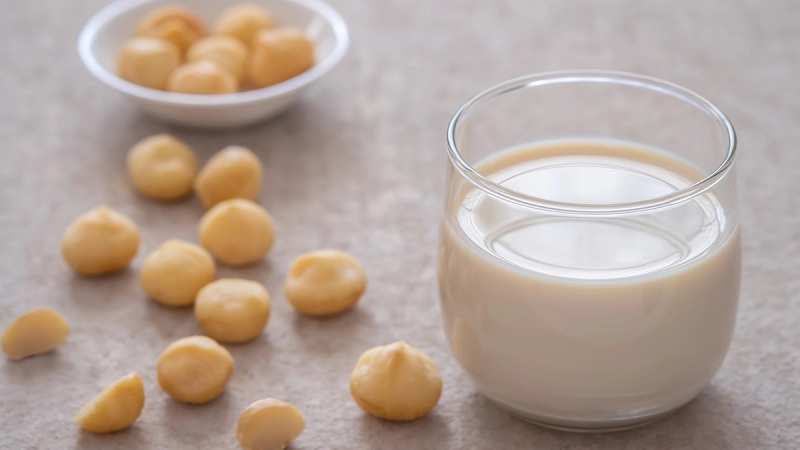
Macadamia Milk 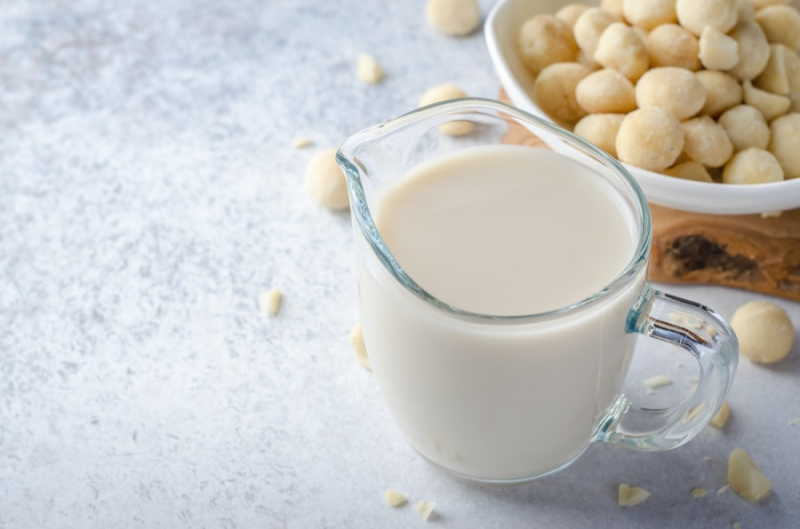
Macadamia Milk -
The seeds of the hemp plant, Cannabis sativa, are used to make hemp milk. Hemp milk has a thin, watery texture and a slightly sweet, nutty taste. It is low in calories and contains little to no carbs.
Unsweetened hemp milk has 60–80 calories, 4.5–8 grams of fat, 2–3 grams of protein, and 0–1 gram of carbs per cup (240 ml). Hemp milk is similar to cow's milk in terms of fat content, but it has half the calories and protein. It also has a substantially lower carbohydrate content. It's an excellent choice for vegans and vegetarians since it has 2–3 grams of high-quality, complete protein that includes all of the essential amino acids in one glass. Hemp milk also contains two essential fatty acids: alpha-linolenic acid, an omega-3 fatty acid, and linoleic acid, an omega-6 fatty acid. Omega-3s and omega-6s are not produced by the body, thus they must be obtained from food. Finally, unsweetened hemp milk is low in carbohydrates, making it a good choice for people looking to cut back on carbs.
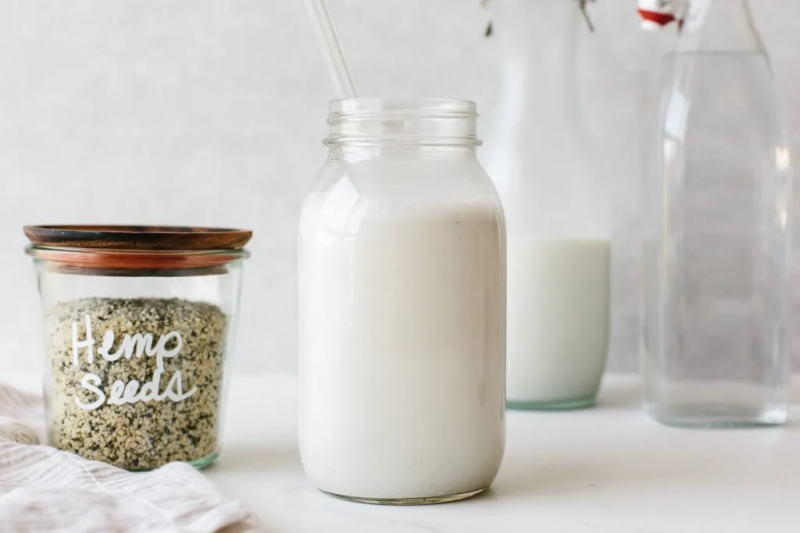
Hemp Milk 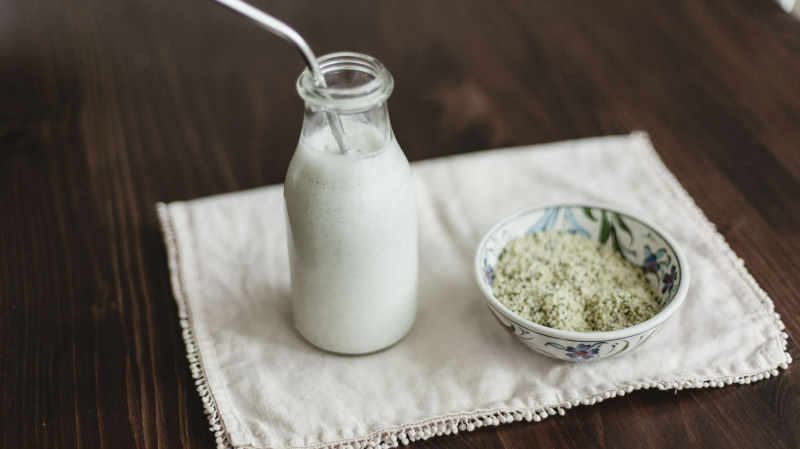
Hemp Milk -
Quinoa milk is made with water and quinoa, a grain-like edible seed. Quinoa is a very nutritious grain that is gluten-free and high in high-quality protein. Quinoa has become a popular "superfood" in recent years. As a result, it's a little more costly than other non-dairy milk, and it's a little harder to find in supermarkets.
Quinoa milk has a distinct quinoa flavor and sweet, nutty flavor. It tastes best when poured over hot oatmeal or porridge. 70 calories, 1 gram of fat, 2 grams of protein, and 12 grams of carbohydrates are found in one cup (240 ml). In comparison to other non-dairy milk, it offers a quite well-balanced nutritional profile. It has low-fat content and moderate protein, calorie, and carbohydrate content. For vegetarians and vegans, quinoa milk is a good plant-based source of complete protein. If it's available in your neighborhood grocery, it could be worth the try.
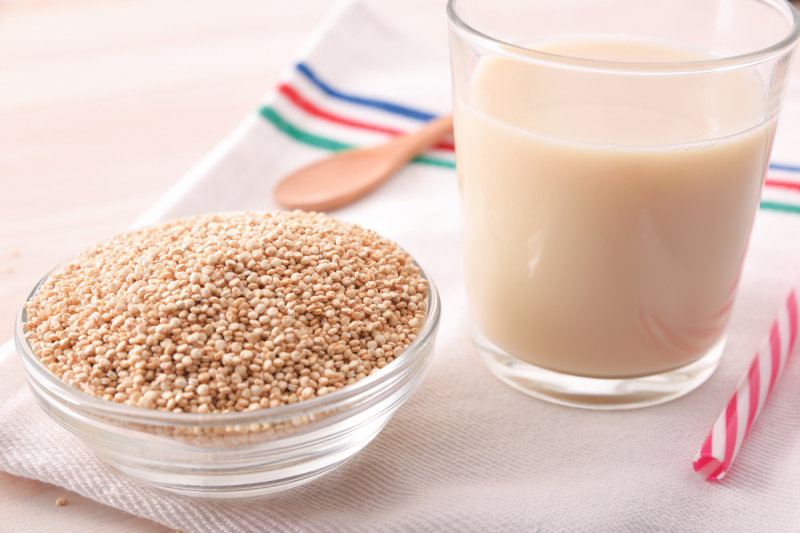
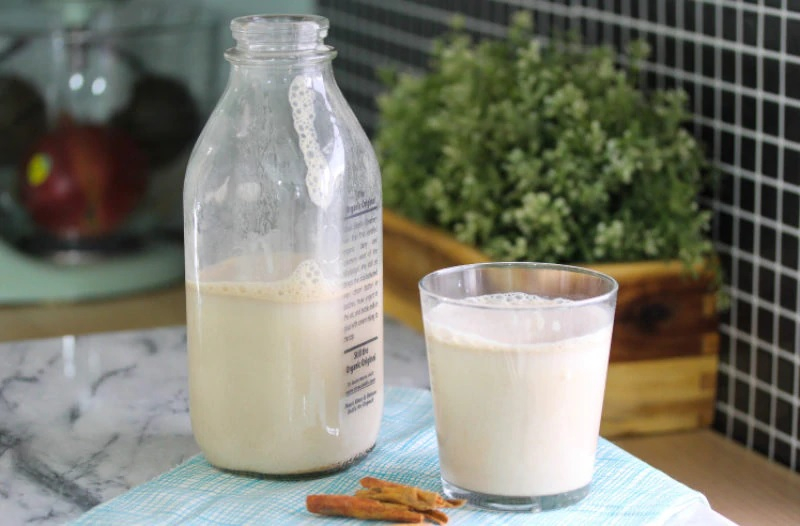
-
Unlike other plant-based milk, such as almond and coconut milk, pea milk has a protein concentration equivalent to cow's milk. Pea milk has the same amount of protein as cow's milk, at 8 grams per cup (240 ml). Pea milk's high protein concentration is due to its yellow pea content. Peas are one of the greatest plant-based protein sources available.
Pea milk is made from pea protein isolate, water, and emulsifiers such as algal oil, sunflower oil, and guar and gellan gums, among others. For 70 calories per cup, it's as creamy as soy but with a slightly less nutty flavor. DHA, a vital omega-3 fatty acid linked to immunity, heart health, and cognition, is offered by algal oil. Pea-based protein powders have grown more popular among people looking to increase their protein intake. Consuming protein-rich foods such as pea milk on a regular basis may help regulate appetite and keep you satiated between meals, thereby promoting weight loss.
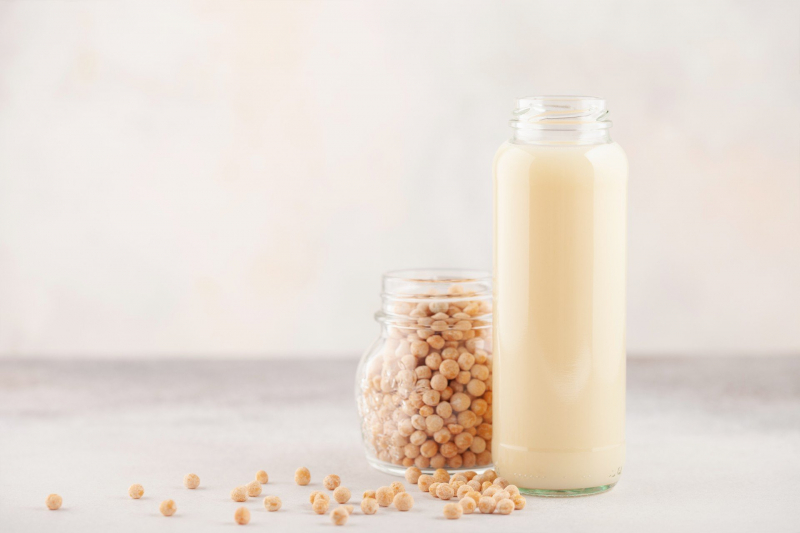
Pea Milk 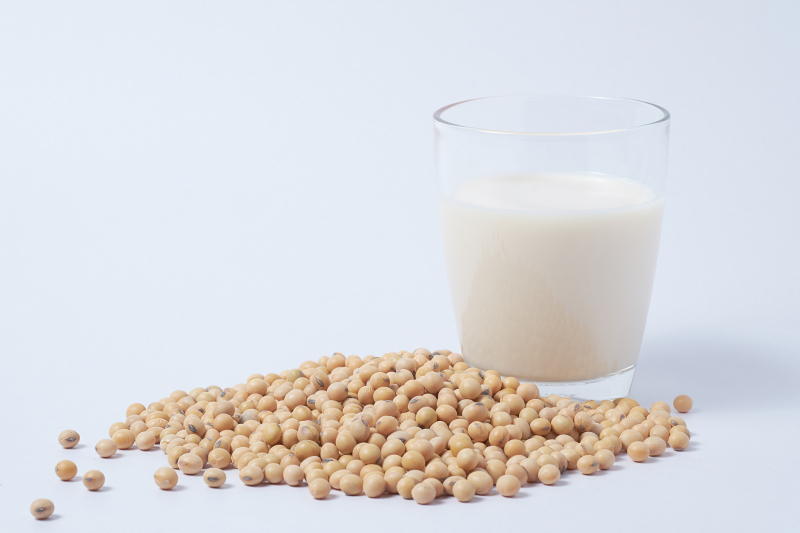
Pea Milk












